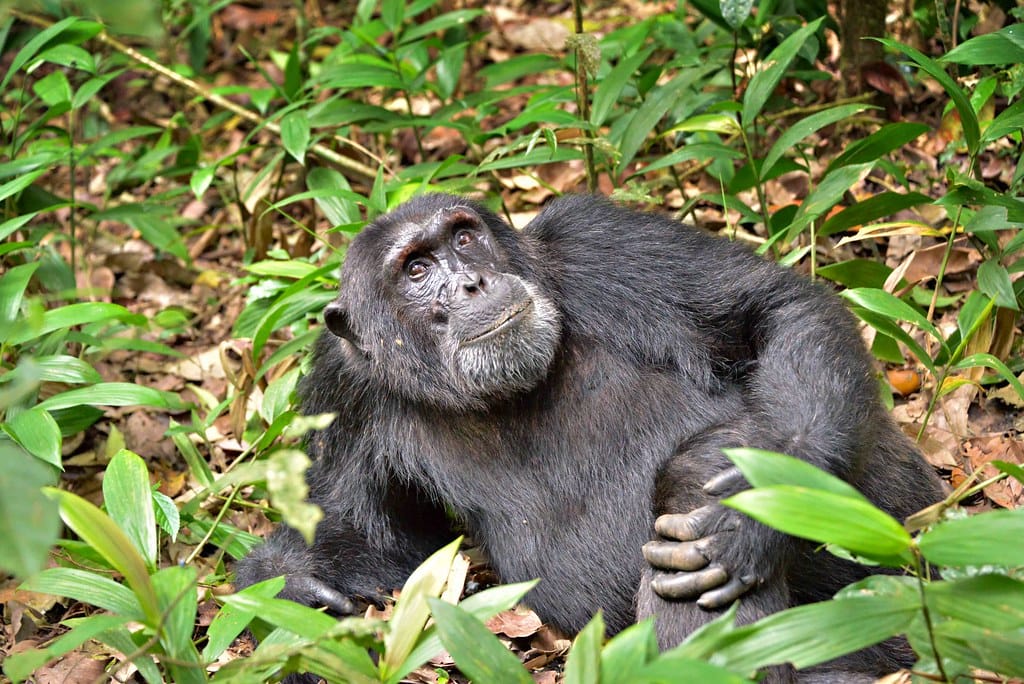Wild Chimps Consume Equivalent of One Beer Daily Through Fermented Fruit, Groundbreaking Study Reveals
Scientists have discovered that wild chimpanzees in Guinea regularly consume enough naturally fermented fruit to match the alcohol content of a full beer, challenging our understanding of alcohol consumption in the animal kingdom and offering new insights into human drinking behaviors.
A Natural Happy Hour in the Forest
A comprehensive 17-year study conducted by researchers from the University of California San Diego and the Université de Montréal has revealed that chimpanzees in Bossou, Guinea, have been engaging in what can only be described as nature's own cocktail hour. The primates systematically seek out and consume fermented palm sap and overripe fruit containing significant levels of ethanol.
Published in the journal Royal Society Open Science, the research documents how these intelligent apes have developed sophisticated techniques for accessing alcoholic beverages that would make any bartender proud. Using modified leaves as sponges, the chimps extract fermented palm wine from containers left by local farmers, consuming quantities that deliver alcohol doses equivalent to what humans experience from drinking beer.
The Science Behind Simian Sipping
The study's most remarkable finding centers on the alcohol concentrations involved. Researchers discovered that the palm wine consumed by these chimpanzees contained ethanol levels ranging from 3.1% to 6.9% by volume—comparable to many commercial beers. When factoring in body weight differences, the chimps were consuming alcohol at rates that would be considered moderate drinking in humans.
Dr. Kimberley Hockings, the study's lead author, explained that the chimpanzees showed clear preferences for higher-alcohol content sources. "They weren't just randomly consuming fermented fruit," she noted. "There was deliberate selection happening here."
Behavioral Patterns Mirror Human Drinking
Perhaps most intriguingly, the chimps displayed behavioral changes consistent with alcohol consumption. Researchers observed:
- Increased social interaction and playfulness
- Altered locomotion patterns
- Extended rest periods following consumption
- Individual variations in consumption preferences
These observations suggest that the effects of alcohol on chimpanzee behavior mirror many aspects of human alcohol consumption, from social lubrication to individual tolerance levels.
Evolutionary Implications Run Deep
This research supports the "drunken monkey hypothesis," a theory proposing that human attraction to alcohol evolved from our ancestors' need to locate ripe, energy-rich fruit. The hypothesis suggests that the ability to detect and metabolize ethanol provided evolutionary advantages by helping primates find calorie-dense food sources.
The study's findings indicate that alcohol consumption may be far more ancient and widespread among primates than previously understood. With chimpanzees sharing approximately 98% of their DNA with humans, these behaviors offer a unique window into the evolutionary origins of human drinking patterns.
Implications for Understanding Human Behavior
The research has profound implications for understanding human relationships with alcohol. If our closest living relatives naturally seek out and consume alcohol in the wild, it suggests that human drinking behaviors may have deeper evolutionary roots than cultural explanations alone can account for.
Dr. Robert Dudley, co-author of the study and professor at UC Berkeley, emphasized that this doesn't justify excessive human drinking but rather helps explain why humans have such a complex relationship with alcohol. "Understanding the evolutionary context doesn't excuse harmful drinking patterns, but it does help us understand why alcohol has played such a significant role in human cultures worldwide."
Conservation and Research Opportunities
Beyond its implications for understanding human behavior, this research highlights the sophisticated cognitive abilities of wild chimpanzees and underscores the importance of protecting their natural habitats. The Bossou chimpanzee community, which has been studied continuously since 1976, represents one of the world's most important long-term primate research sites.
The study also opens new avenues for research into primate cognition, tool use, and social behavior. The chimps' sophisticated techniques for accessing fermented beverages demonstrate problem-solving abilities and cultural transmission of knowledge within their communities.
Key Takeaways
This groundbreaking research reveals that moderate alcohol consumption occurs naturally in our closest living relatives, providing new perspectives on the evolutionary origins of human drinking behaviors. While these findings don't justify excessive alcohol consumption in humans, they do suggest that our complex relationship with alcohol has deeper roots than previously understood.
The study reinforces the importance of long-term field research and conservation efforts, while opening new questions about cognition, culture, and behavior in our primate relatives. As we continue to study these remarkable animals, we gain not only insights into their world but also a better understanding of our own evolutionary journey.
